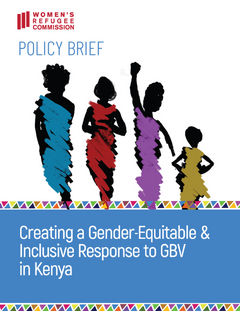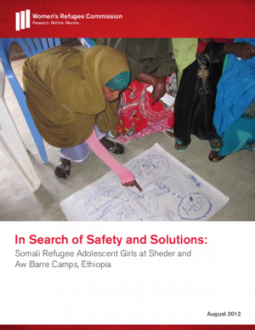
Creating a Gender-Equitable and Inclusive Response to Gender-Based Violence in Kenya
PublishedThis policy brief shares key findings and recommendations from a two-year feminist action research project (2021-2022) that worked with key stakeholders to create gender-equitable and inclusive responses to gender-based violence in the Tana River and Nairobi counties of Kenya. The research was conducted in both counties using in-depth interviews, focus group discussions, desk research, and collected narratives to better understand the barriers and enablers facing women led civil society organizations (CSOs) in their responses to gender-based violence in crises and displacement. Findings showed that shifting to more decentralized approaches can better contribute to actions to eliminate gender-based violence. The recommendations that are included in this report aim to support the decentralization of resources to those who are present and actively engaged in the gender-based violence response during humanitarian crises: first responders.
Local Core Working Groups, composed of women led CSOs, operational local humanitarian and development organizations, international humanitarian NGOs, and government representatives, were created in the Tana River and Nairobi counties to develop and implement an action plan based on these findings and recommendations for a gender-equitable, inclusive, and localized response to GBV in Kenya.



